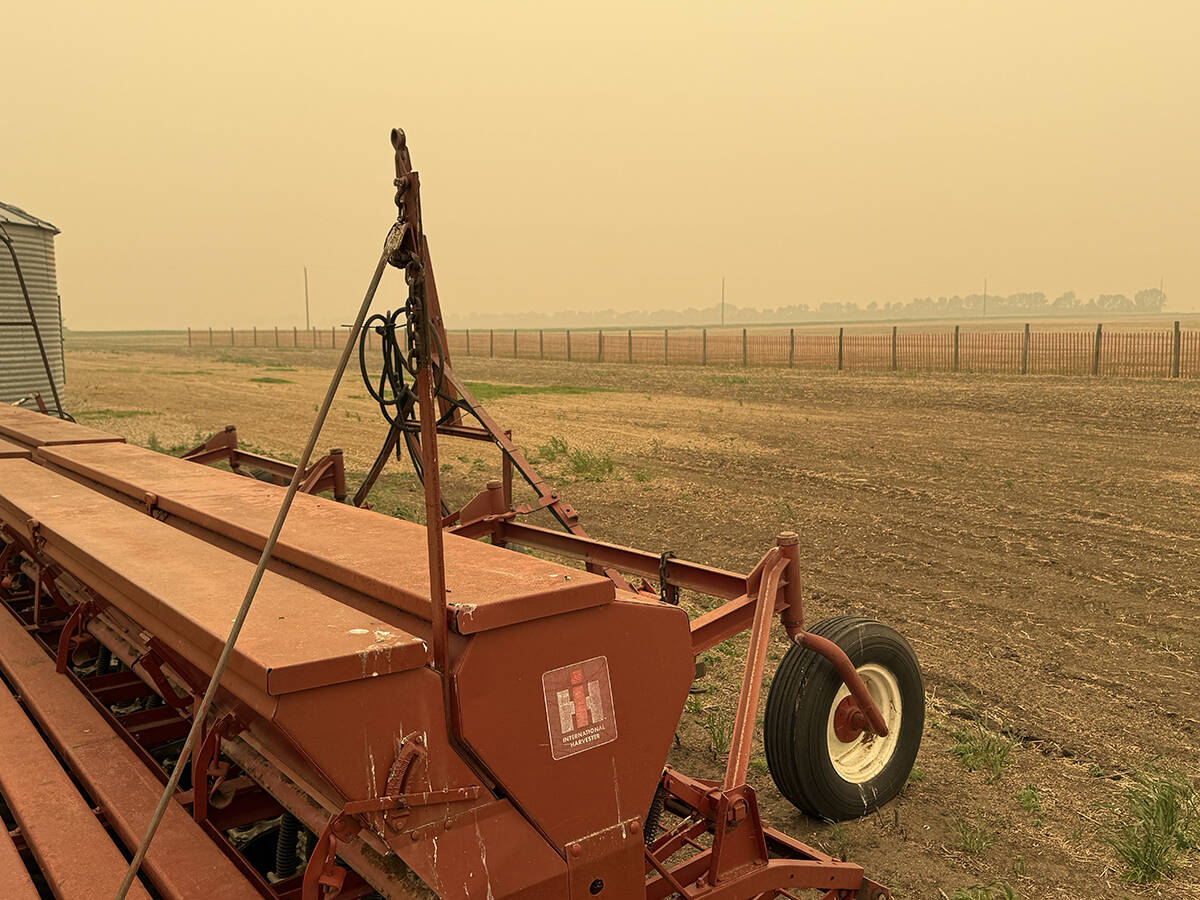Coming north after delivering a load of flax or oats into the United States, Ken Foster’s trucks can clear customs in the wink of an eye.
The truckers go through a special lane at the border crossing between Pembina, North Dakota and Emerson, Man. Border officials and customs brokers use a quick bar code scanning system to process the load.
“They know you’re coming and they just whip you through,” said Foster, an Arborg, Man., farmer who runs a small commercial trucking operation on the side.
Read Also

Wildfires have unexpected upside this year
One farmer feels smoke from nearby wildfires shrouded the July skies and protected his crop from the sun’s burning rays, resulting in more seeds per pod and more pods per plant.
He hopes a proposal to make all Canadians sign in and out at the U.S. border won’t add time to his truckers’ tight schedules.
“We’ve always got deadlines,” said Foster. “If you miss by five minutes down on the other end, you sometimes sit and wait till morning. Truck turnaround time for us is very important.”
But a U.S. law passed in 1996 would see a visa-like system set up by 1999. Every foreigner entering the U.S. would have to sign in and out of the country.
North Dakota governor Ed Schafer and Manitoba premier Gary Filmon say they’re worried about the lineups a registration system could create at the Emerson border crossing, the second busiest in Western Canada.
In 1996, $4.5 billion in Canadian exports went through the crossing. Sixty percent of the goods came from Manitoba. Each day, 1,000 trucks cross into the U.S., and 1,000 come back into Manitoba, said Filmon.
Schafer said the “misguided legislation” was meant to tackle the problem of illegal immigration from Mexico into southern states.
Canadians not a problem
He said he’s not aware of a problem with Canadians illegally immigrating to the United States.
Americans from the northern states are used to their federal government forgetting about their concerns and issues, Schafer added.
“I think they drink funny water there (in Washington, D.C.), I’m not sure,” he said.
Both politicians said they’re worried about the law’s effect on tourism and their promotion of a mid-continent trade corridor running from Winnipeg to Mexico.
Schafer said a study at the Windsor, Ont.-Detroit border crossing showed a 30-second delay in traffic could lead to an 18-hour long jam at the border.
“Good neighbors don’t cause traffic jams or frustration,” he said at a news conference, after giving Filmon a sweatshirt proclaiming his state’s friendship.
But Schafer is hopeful U.S. politicians will create a detour around the law for Canadian travelers. A senator from Michigan has drafted a bill calling for an exemption for Canadians.
The bill will soon go before a U.S. Senate committee. If it passes, it would then go before the full Senate and House of Representatives.














